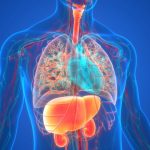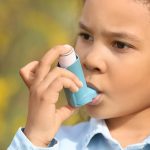
Obesity, alcohol use and other factors are driving up rates of fatty liver disease among American adults, new research warns. By 2018, federal data showed that 42% of adults had some form of fatty liver disease — higher than prior estimates, according to a team led by Dr. Juan Pablo Arab, a liver specialist with at Virginia Commonwealth University’s Institute for Liver Disease and Metabolic Health, in Richmond. Hispanic adults were at especially high risk, the team noted, with nearly half (47%) affected. The findings were published recently in the journal Nature Communications Medicine. As Arab’s team explained, fatty liver disease comes in many forms, but involves the slow buildup of fat deposits within the blood-cleansing organ. There are three main kinds of fatty liver disease: metabolic dysfunction-associated steatotic liver disease (MASLD, caused by metabolic factors such as obesity and diabetes), alcohol-associated liver disease (ALD) and a combination of both syndromes, called MetALD. According to the American Liver Foundation, advanced liver disease can cause jaundice, fluid retention, eye trouble and brain dysfunction. Over time, liver failure and fatal kidney complications can also occur. The new study was based on 2017-2018 data from the National Health and Nutrition Examination Survey, looking at the health of 5,523 adults. MASLD is by far the most common form of liver disease, affecting 42% of adults. ALD and MetALD affect… read on > read on >















-150x150.jpg)

